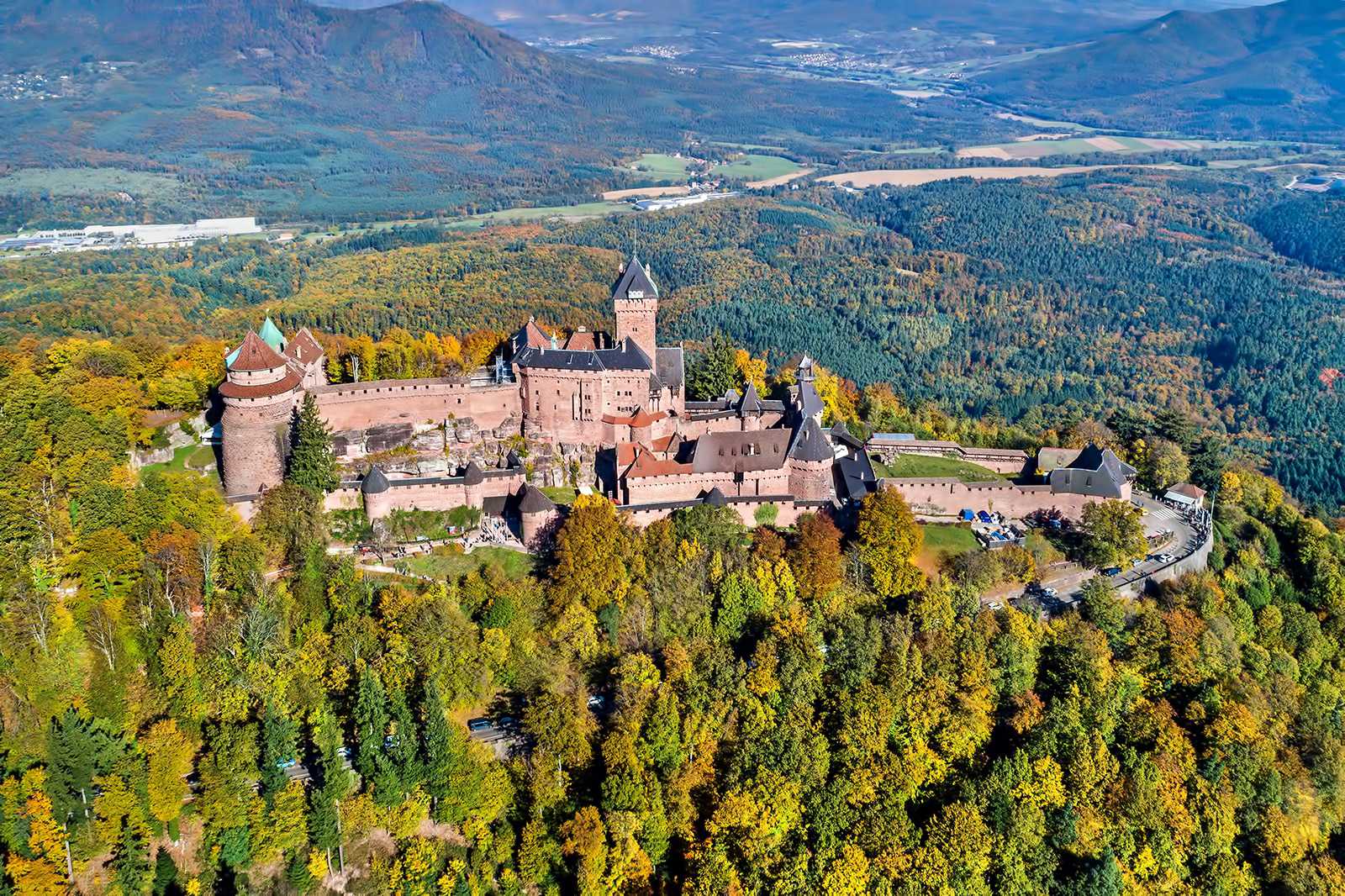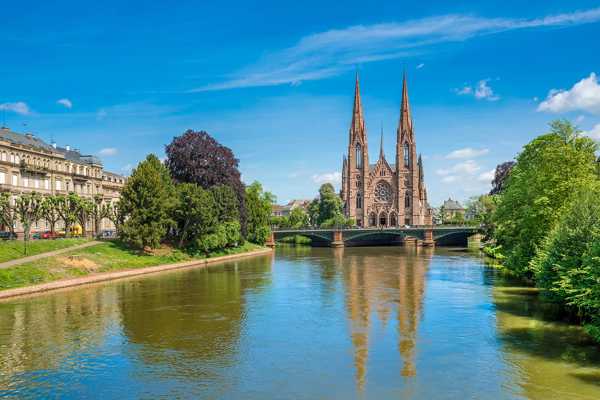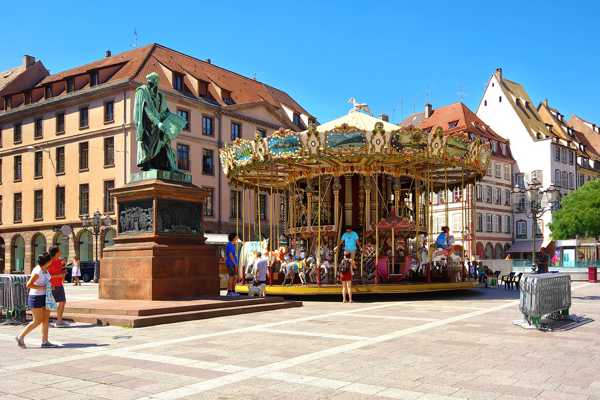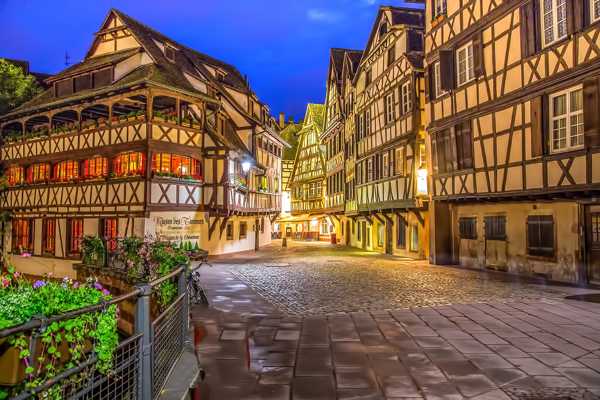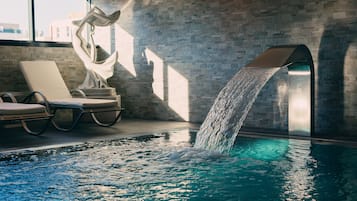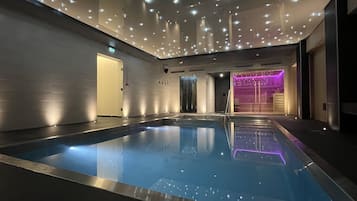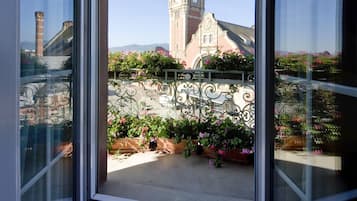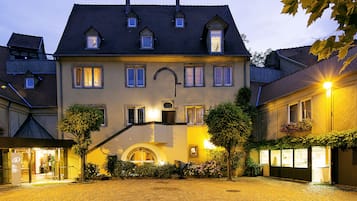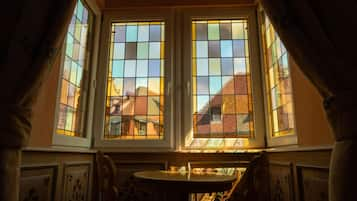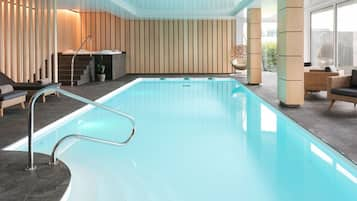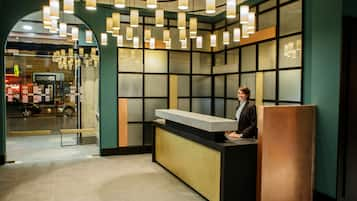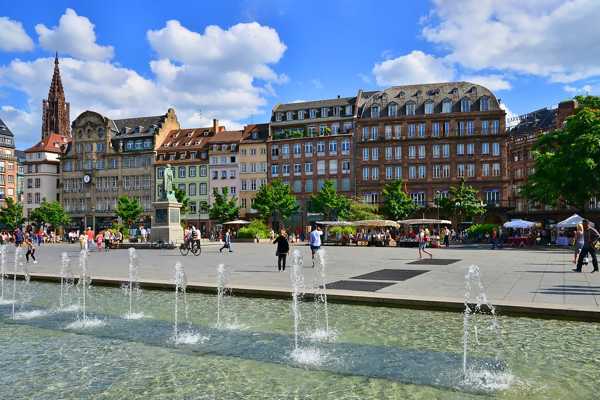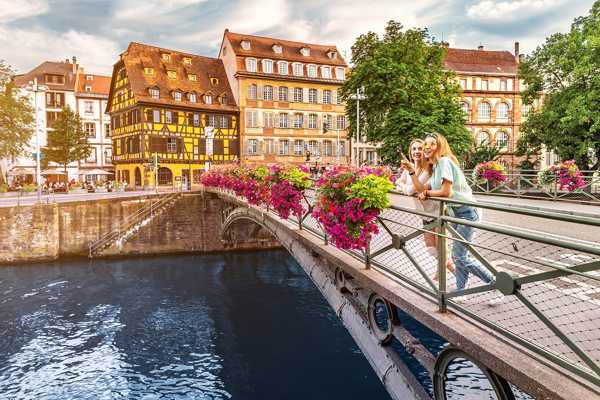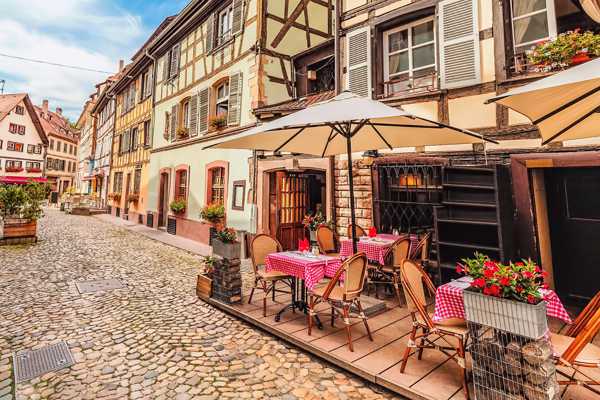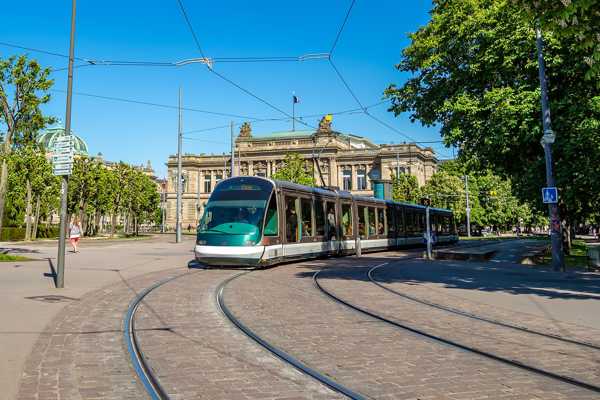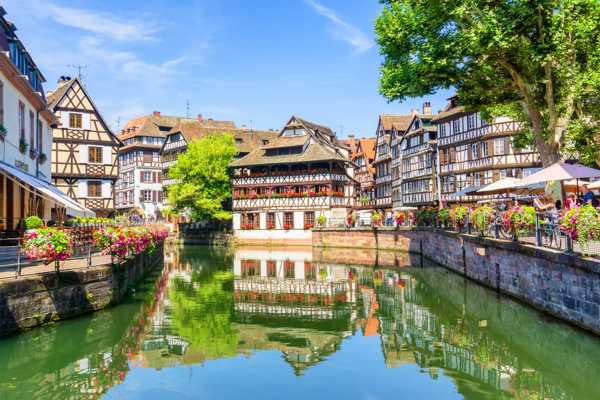Exploring the medieval towns and beautiful countryside are among the best things to do in the Alsace region of France. It's like stepping back to a simpler time, with most towns retaining their medieval walls and astonishingly well-preserved half-timbered houses. At least 6 towns in the region have made the shortlist of Les Plus Beaux Villages de France (The Most Beautiful Villages of France).
The Alsace region's history is marked by shifts between French and German ownership, resulting in a unique mix of both cultures. Of course, you can't talk about Alsace without mentioning its beautiful wine road. Follow the wine road from Strasbourg to Colmar; a great way to discover the charming medieval towns and the beautiful countryside.
What are the best things to do in Alsace?
- 1
Petite France in Strasbourg
Narrow alleyways and half-timbered houses
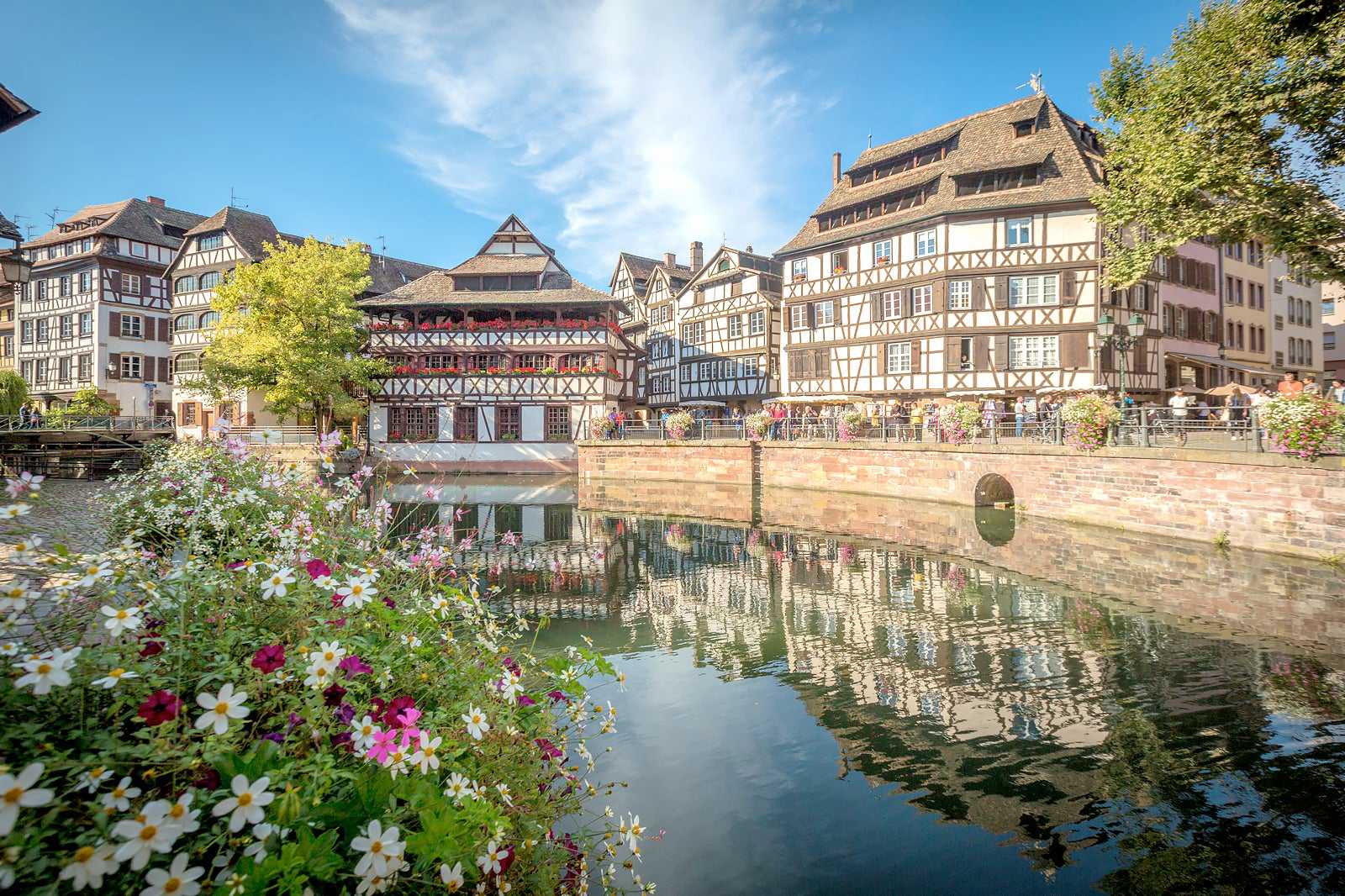
- Économique
- Histoire
- Photographie
The Petite France neighbourhood in the centre of Strasbourg is the perfect start for your Alsace trip. In this part of town, the river splits into multiple water channels which are controlled by a system of locks. Petite France is part of the Grande Île of Strasbourg which is a UNESCO World Heritage site. In the Middle Ages, the area was the former living quarters of the tradespeople like tanners, millers, and fishermen.
The entire area is a pedestrian zone which means you can wander the narrow alleyways between the timbered houses and discover many small shops and restaurants.
Emplacement : Petite France, 67000 Strasbourg, France
Cartephoto de Claude TRUONG-NGOC (CC BY-SA 3.0) modifiée
- 2
Strasbourg Cathedral
Pink sandstone has never looked so good
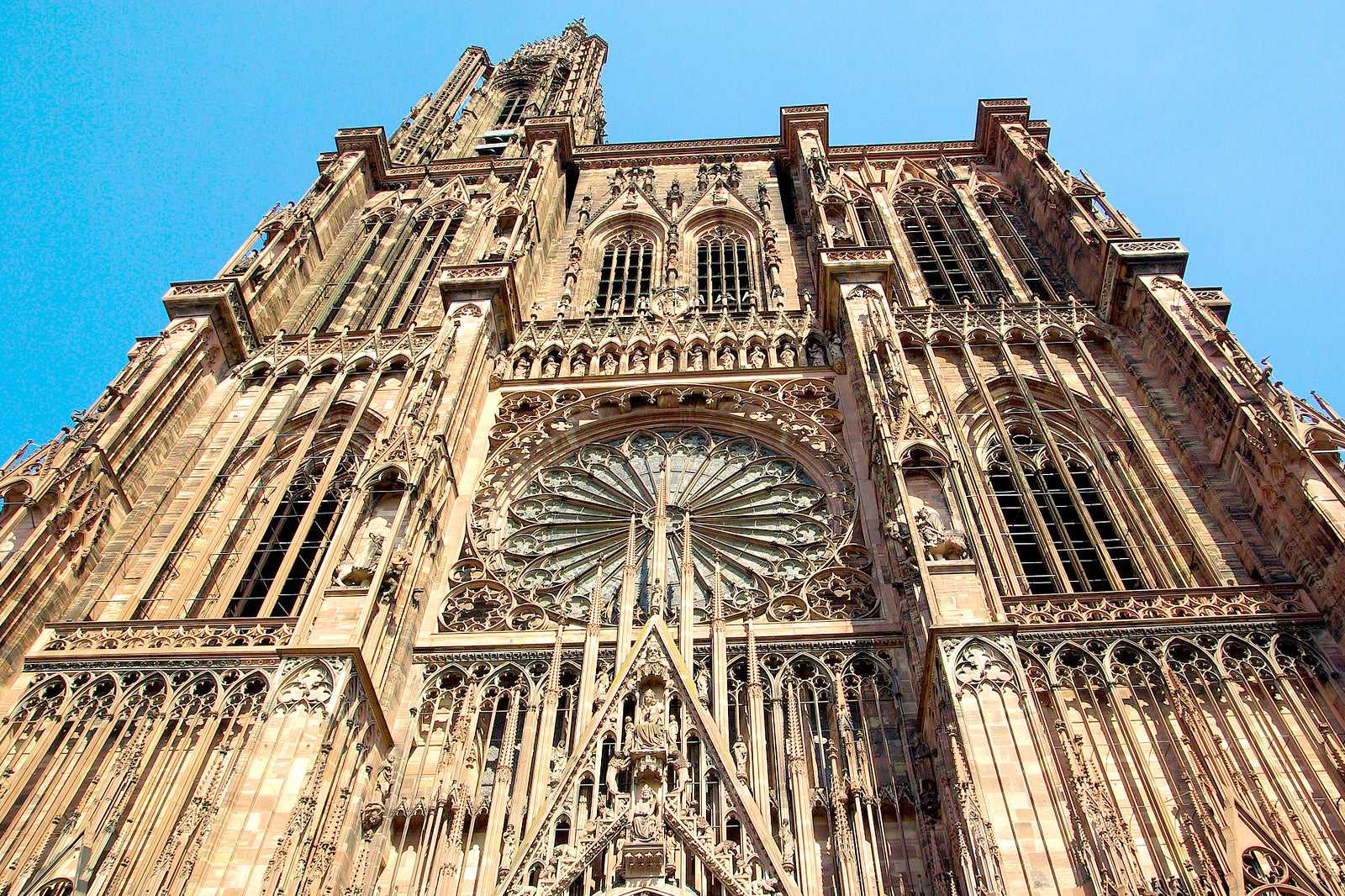
- Économique
- Histoire
- Photographie
The Notre Dame de Strasbourg Cathedral, a majestic structure crafted from pink sandstone, stands as the tallest tower in the city. Enjoy panoramic views over Strasbourg from the tower viewing platform. While climbing the tower stairs, check out the graffiti carved by cathedral visitors from as early as the 1600s. The carving script is artistically done and surprisingly adds to the beauty of the building.
Strasbourg Cathedral has one of the world’s oldest anatomical clocks. The current clock, complete with its mechanical rooster, was built in the 1800s but there have been similar versions dating back to the 14th century. The original version had a rooster that crowed (using bellows) and is displayed at the nearby Museum of Decorative Arts.
Emplacement : Place de la Cathédrale, 67000 Strasbourg, France
Ouverture : Monday–Saturday from 8.30 am to 11.15 am and 12.45 pm to 5.45 pm, Sunday from 2 pm to 5.15 pm
Carte - 3
Alsace Wine Route
Your starting point for exploring the Alsatian countryside
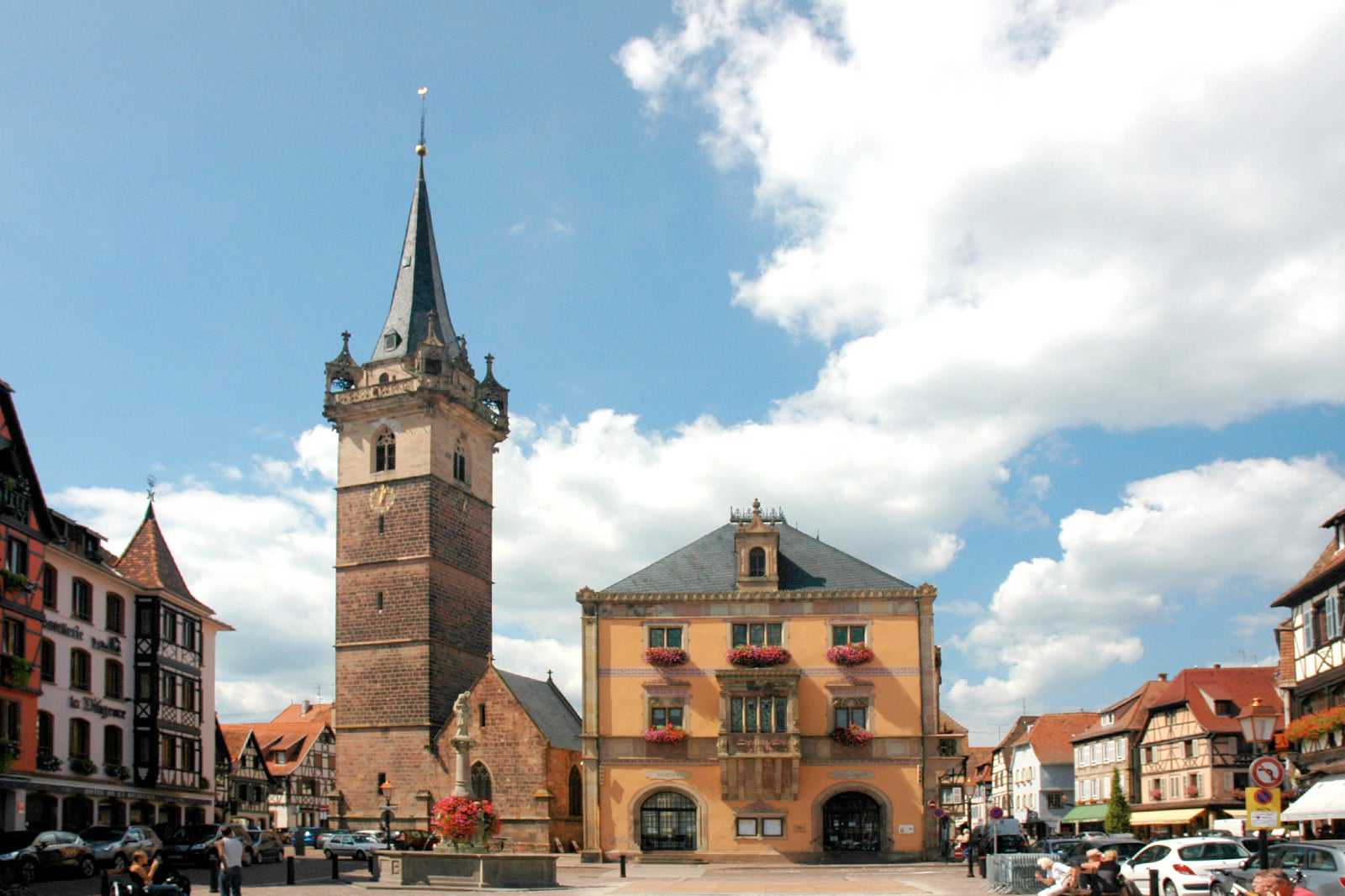
- Couples
- Gastronomie
- Histoire
The legendary Alsace Wine Route takes you past hundreds of wine cellars as it winds through some of the most charming villages in France. A great place to start the route is in Obernai which is one of the first cities that you’ll encounter when heading into the Vosges mountains after your time in Strasbourg.
Wine tasting rooms normally have a sign outside that says Vin d’Alsace and you may need to ring a bell since the hosts may not be waiting in the shop. The area’s most famous wine varietals are Riesling, Pinot Blanc, Gewurztraminer and Muscat. These are all dry, white wines which grow well in the Vosges foothills.
Emplacement : Route d'Ottrott, 67210 Obernai, France
Cartephoto de Calips (CC BY-SA 3.0) modifiée
- 4
Mont Sainte-Odile
A historic pilgrimage destination
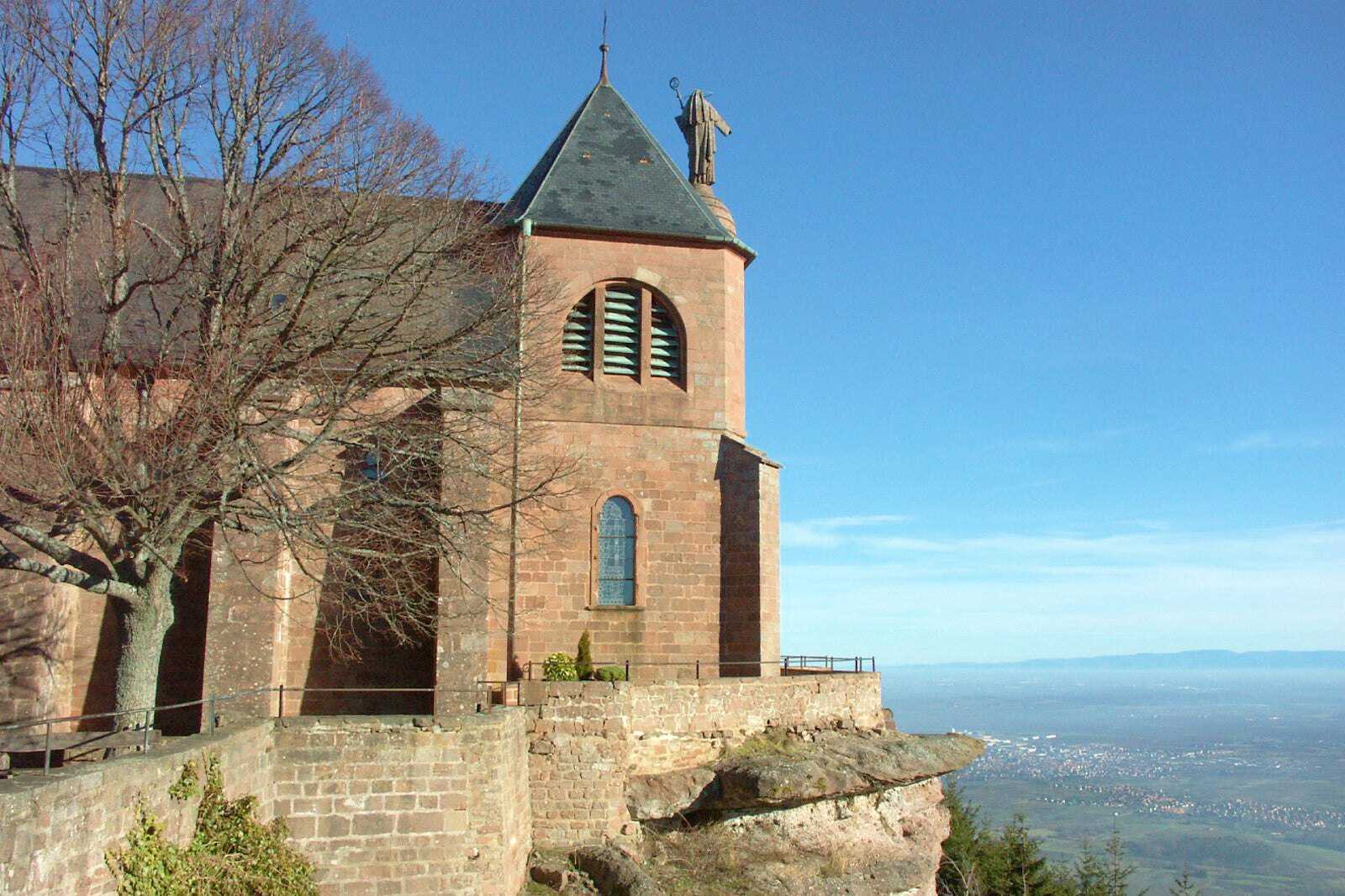
- Aventure
- Histoire
The Mont Sainte-Odile cathedral is just up the hill from Obernai in Alsace. From the top, you can look out over the Alsatian countryside with its small towns and extensive vineyards. On a clear day, you can even see the hills of the Black Forest in Germany, right across the border.
Saint Odile is the patron saint of the Alsace region and was born in Obernai, just down the hill. The cloister is now an important spiritual destination in Alsace. Mont Saint-Odile can be reached by car, or you can take the 5-km hiking trail through the forest from Ottrott.
Emplacement : Mont Sainte-Odile, 67530 Ottrott, France
Carte - 5
Butterfly House
For when you need even more natural beauty
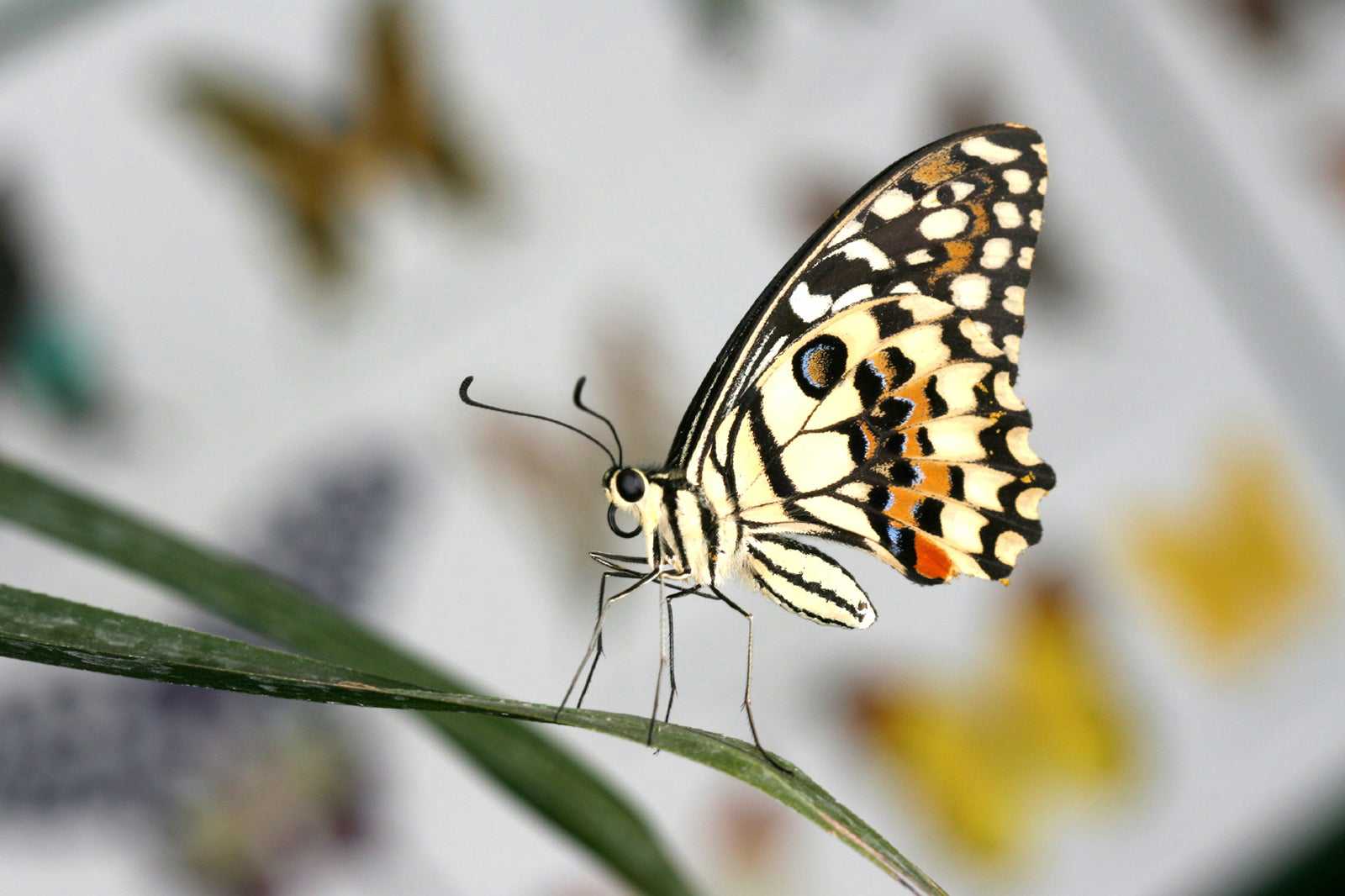
- Couples
- Familles
Jardin des Papillons (Butterfly House) is home to a variety of butterfly species from Africa, Asia and the Americas. You’ll likely see many cocoons in the butterfly nursery as well as newly emerging butterflies during your visit. The greenhouse is also home to a large selection of tropical plants and flowers.
Visit in summer, and you’ll likely see storks flying through the skies. In spring and summer, the Alsace region becomes their breeding ground. The locals love their winged visitors; during your time in Alsace, you'll see plenty of wooden or iron structures on the tops of buildings which the storks build their nests on.
Emplacement : Route de Ribeauvillé, 68150 Hunawihr, France
Ouverture : Hours vary by season
Téléphone : +33 (0)3 89 73 33 33
Cartephoto de Didier (CC BY-SA 2.0) modifiée
- 6
Timbered houses in Riquewihr
Worth the hype
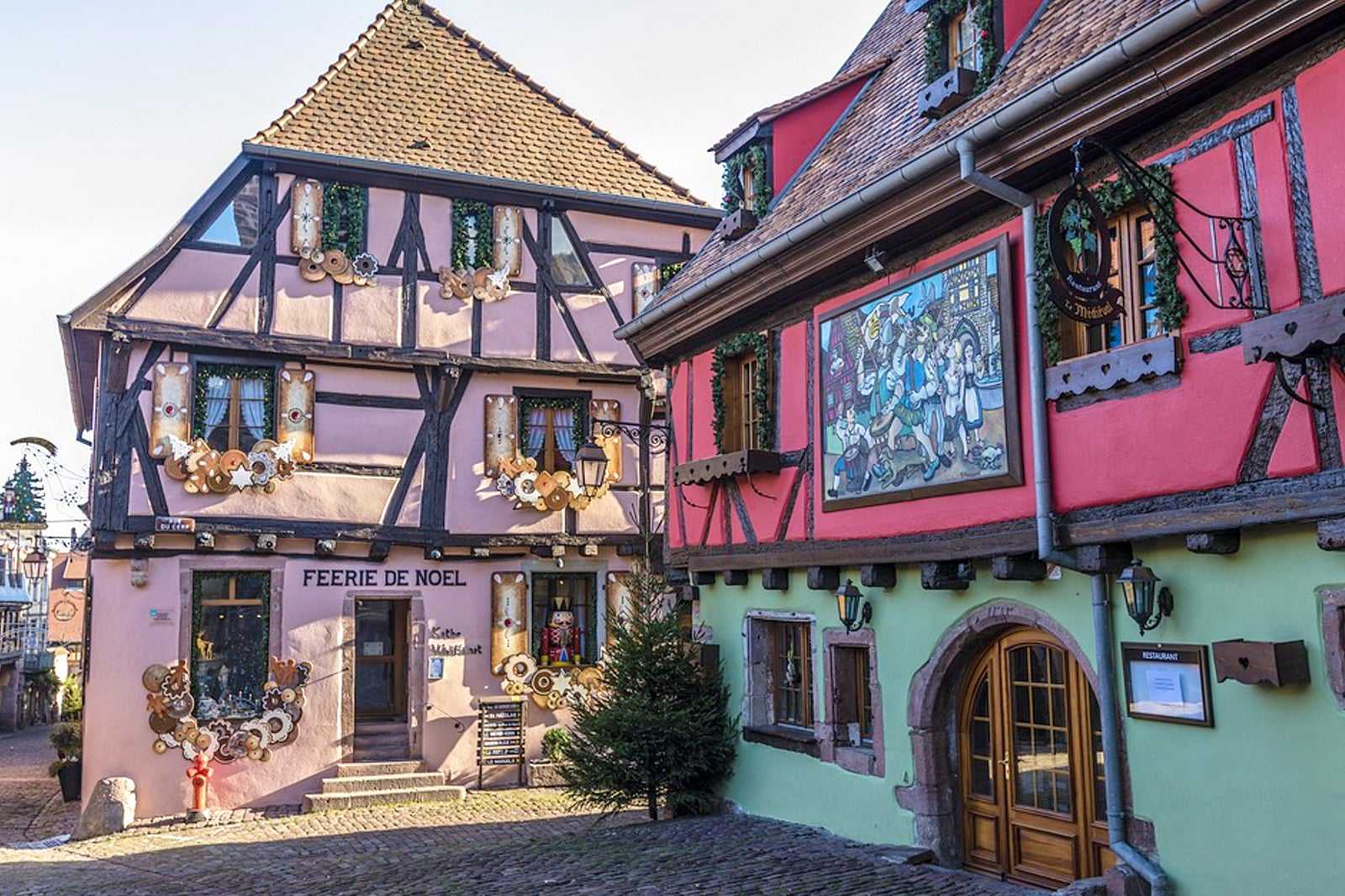
- Économique
- Histoire
- Photographie
The timbered houses in Riquewihr, painted in hues of cobalt blue, brick red and mustard yellow, make it a jewel of the Alsace Wine Route. The city is one of at least 6 Alsatian towns on the list of Les Plus Beaux Villages de France (The Most Beautiful Villages of France).
The town’s main street is lined with shops selling cheeses, local produce and wines. The Dopff winery at the end has award-winning wines and offers cellar tours. The town is also home to a Michelin star restaurant serving regional classics with a twist. The beautiful town can fill up with tourists by lunchtime, so try to arrive early in the day.
Emplacement : Riquewihr, 68340 France
Carte - 7
Kaysersberg
Roman roots and medieval charm
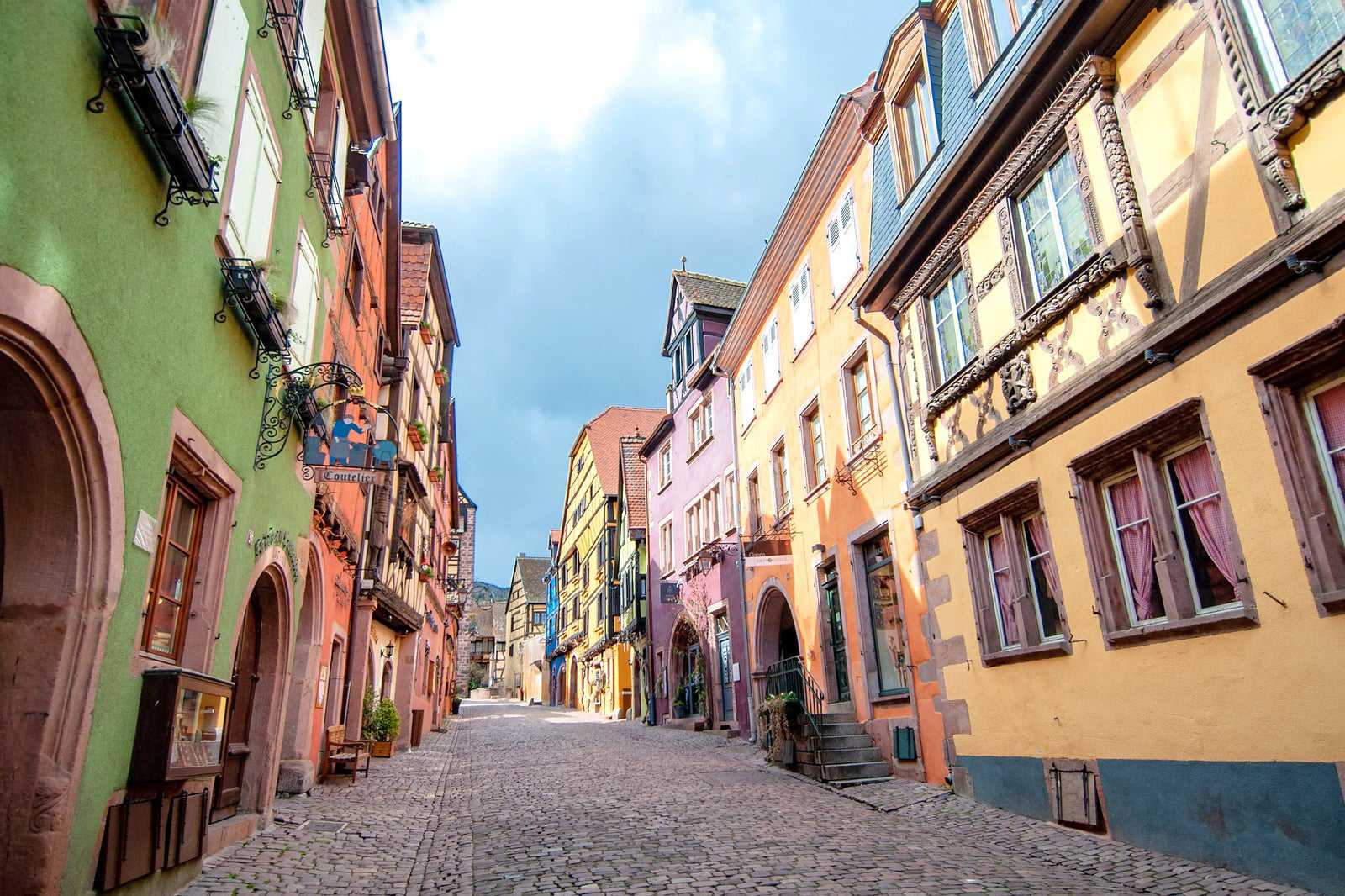
- Économique
- Histoire
- Photographie
Kaysersberg is one of the great examples of a well-preserved medieval town in the Alsace region. The architectural prowess of the past is well represented in structures such as The Sainte Croix church, boasting a Roman-style entrance arch. There is also the fortified bridge gracefully towering above the castle which marks the original place of the Roman road linking Alsace and Lorraine.
Kaysersberg is not just about history; the town is full of charming half-timbered houses, cobblestoned streets and water canals that run through the town, adding to its enchanting charm.
Emplacement : Kaysersberg-Vignoble, 68240 France
Carte - 8
The 3 castles of Eguisheim
A short hike through history
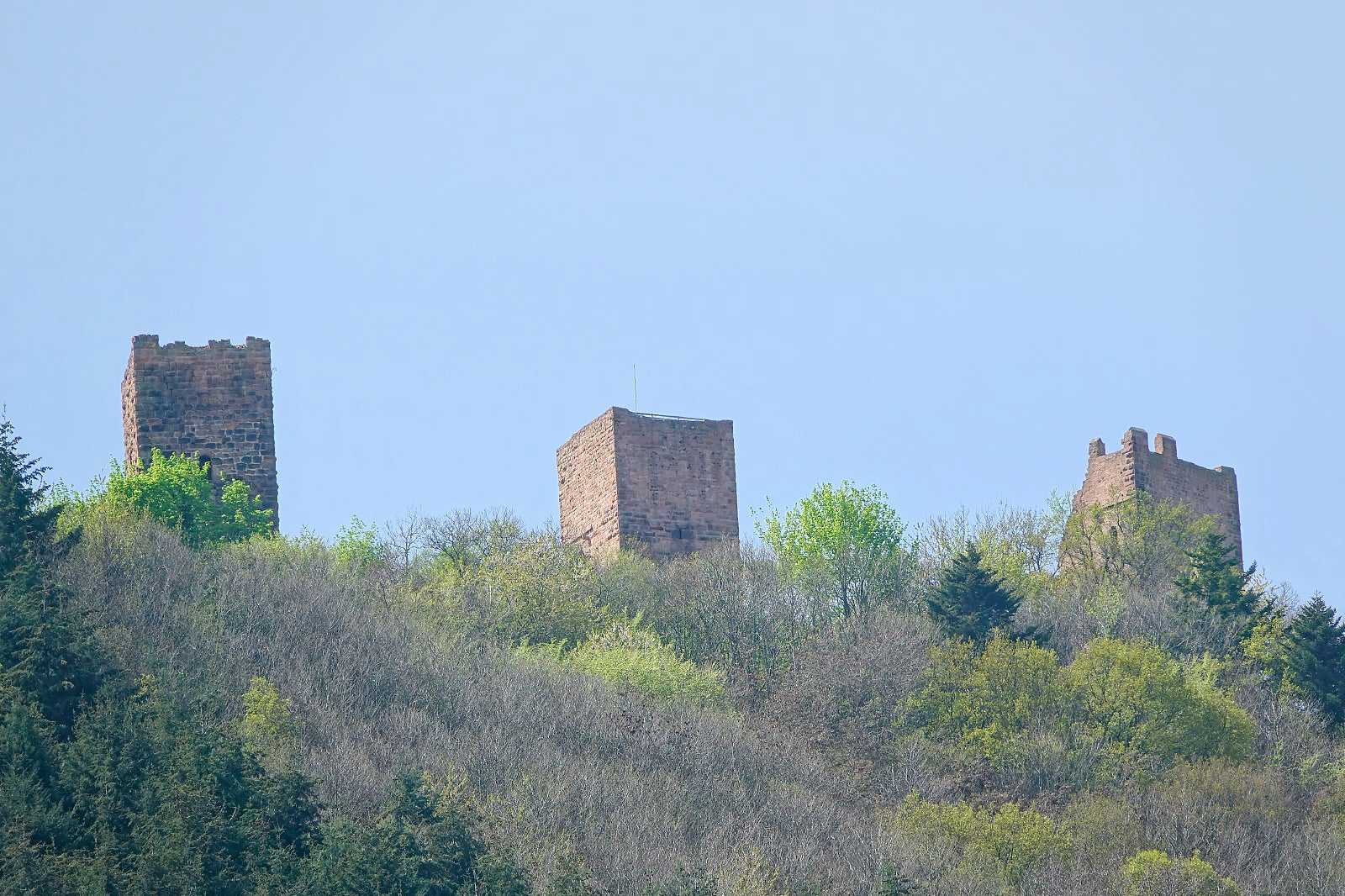
- Aventure
- Économique
- Histoire
The 3 castles of Eguisheim, Les Trois Châteaux d'Eguisheim, are a key attraction of Eguisheim, one of Les Plus Beaux Villages de France (The Most Beautiful Villages of France). A hiking trail on the Schlossberg hill leads you past these towers, which are part of a network of castle ruins. The middle tower was built in AD 1006 on the spot where a Roman watchtower once stood. The other 2 towers were added in the 12th century.
The 4-km-long trail starts from Eguisheim’s town centre. Beautiful views from the hilltop look over Colmar nearby, the vineyards in the Alsatian plain and the Vosges mountain range. You can visit the ruins for free.
Emplacement : 68420 Eguisheim, France
Cartephoto de Gzen92 (CC BY-SA 4.0) modifiée
- 9
Colmar’s Little Venice
The perfect place to end your trip in Alsace
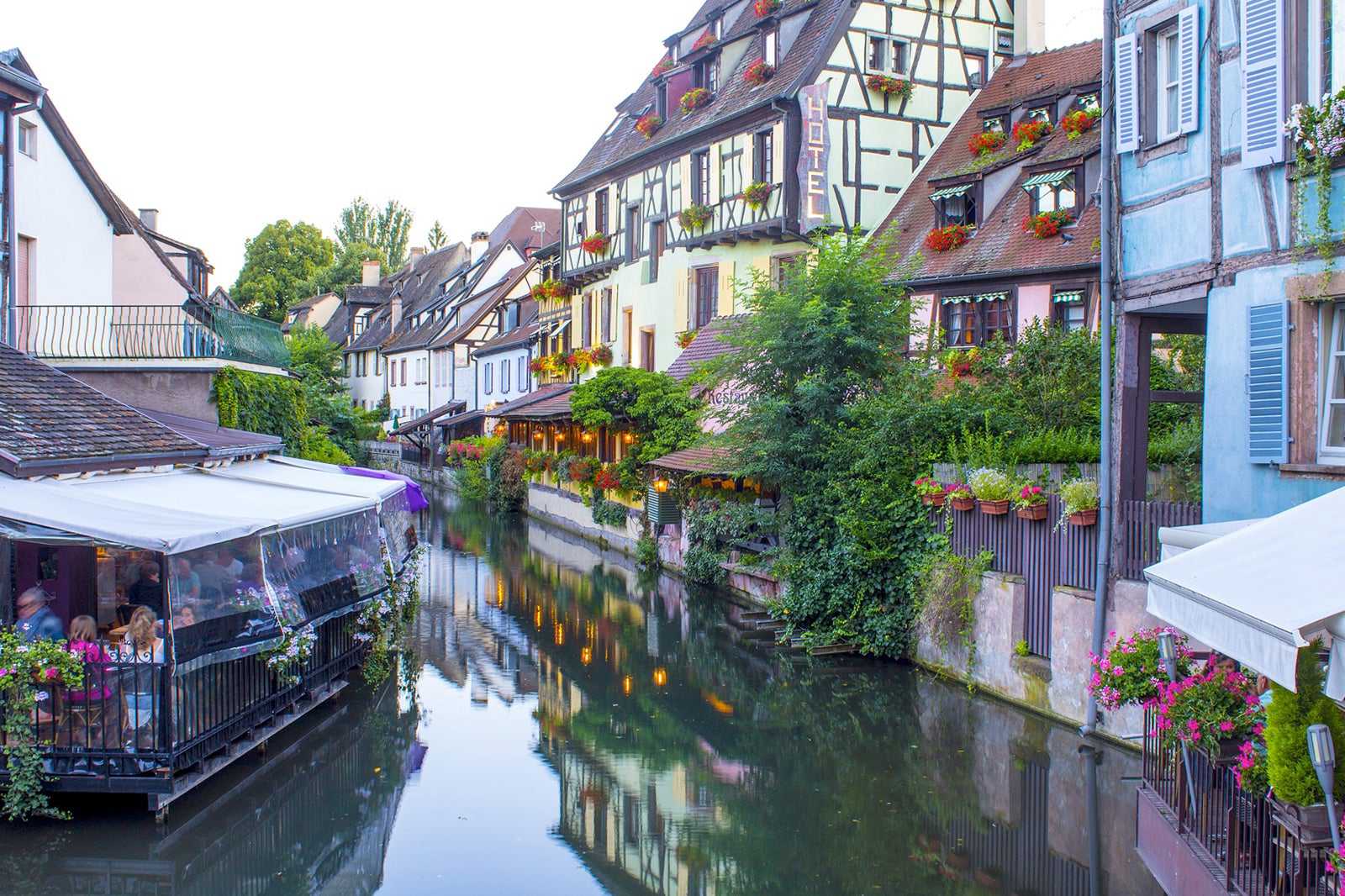
- Économique
- Histoire
- Photographie
Colmar's Little Venice, characterised by the many waterways that traverse the area, along with nearby Riquewihr, are thought to have inspired the town depicted in Beauty and the Beast.
Colmar is also the birthplace of the Statue of Liberty sculptor, Auguste Bartholdi. In his honour, the town erected a Statue of Liberty replica in an unassuming place: right in the middle of a traffic circle. While it may seem too mundane, the benefit of the statue's location is that it greets most of the people who are coming into Colmar on the north side of the city.
Emplacement : 68000 Colmar, France
Carte - 10
Tarte flambee in Ribeauvillé
A traditional dish after a long day in the countryside
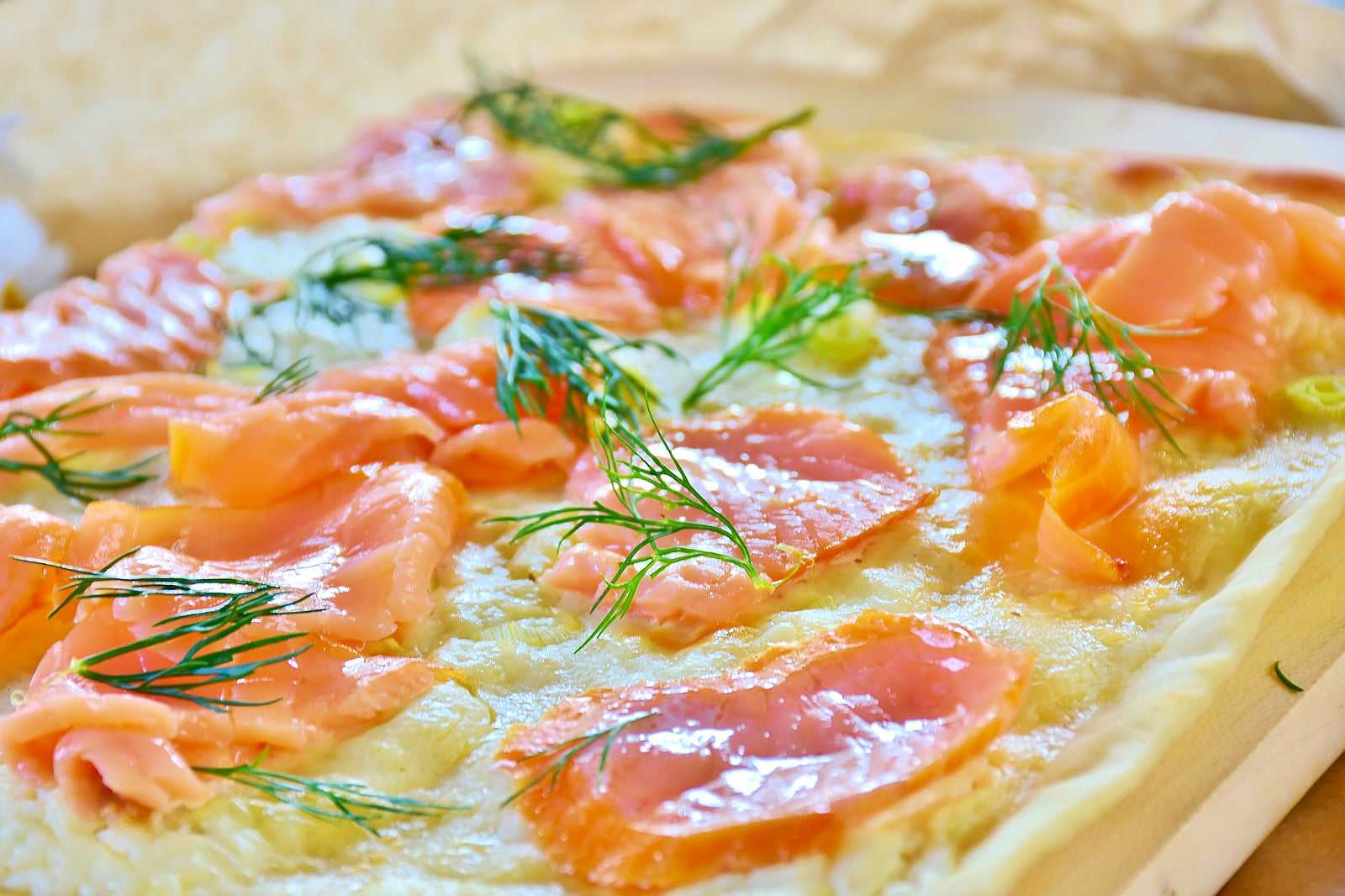
- Gastronomie
- Histoire
Tasting tarte flambee in Ribeauvillé is a fantastic way to conclude a day of hiking and local wine sampling in Alsace. This town, nestled in a valley with vineyards on the surrounding hills, is an ideal dinner and overnight stop. If you have more energy to see another castle, the Chateau Saint-Ulrich is accessible from Ribeauvillé via hiking trails or by road.
At this point in your Alsatian adventure, it’s time to sample the region’s famous tarte flambee, or flammkuchen in German. It’s a thin flatbread, traditionally with creme fraiche, bacon and white onions. Any traditional restaurant in Ribeauvillé will serve this iconic dish.
Emplacement : 68150 Ribeauvillé, France
Carte
